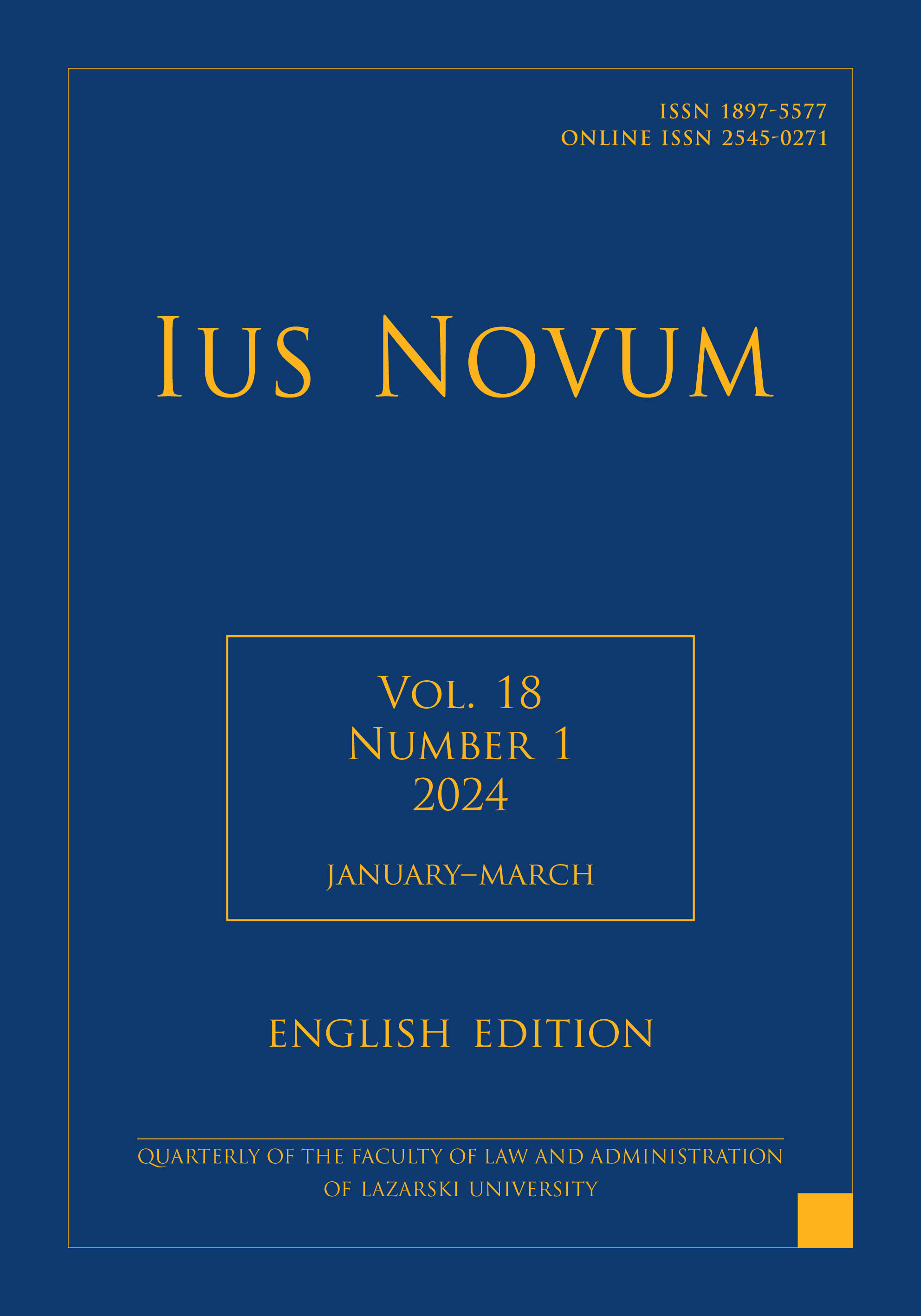Model of judicial management of evidence-taking proceedings in the Italian civil trial (Cartabia Reform)
Model of judicial management of evidence-taking proceedings in the Italian civil trial (Cartabia Reform)
Author(s): Małgorzata ManowskaSubject(s): Civil Law
Published by: Oficyna Wydawnicza Uczelni Łazarskiego
Keywords: Cartabia Reform; judicial management of a proceeding; evidence-taking proceeding; in ius vocatio; preliminary hearing; Italian civil procedure; principle of honesty and loyalty;
Summary/Abstract: The article presents a model of judicial management of the evidence-taking proceeding in the Italian civil procedure following the reform introduced by Law No. 206 of 26 November 2021, implemented, inter alia, on 28 February 2023 and 30 June 2023 by means of Legislative Decree No. 149 of 10 October 2022 (the reform was named riforma Cartabia after its author, former Minister of Justice, Marta Cartabia). Post-reform, the model has become significantly formalised and more detailed, limiting the judge’s decision making freedom in organising proceedings. From the perspective of the principle of procedural material concentration andjudicial management of the evidence-taking proceeding, the preliminary stage is critical: from the plaintiff’s summons of the defendant to court (in ius vocatio), which is essentially a lawsuit, to the hearing for the first appearance of the parties and case verification. At this stage, parties are required to present facts, legal elements of a claim, means of evidence, and all defencearguments in their pleadings within statutory deadlines. The subsequent stage of collecting procedural material important for the case resolution is a hearing scheduled for the first appearance of the parties and verification of the case (often termed ‘a preliminary hearing’). Here, the judge freely questions the parties and, based on the presented facts, clarifies mattersnecessary to resolve the case. After questioning the parties, the court may decide to conduct a conciliation proceeding. If not, the judge rules on the parties’ evidence-related motions and, considering the nature, urgency and complexity of the case, sets a timetable for subsequent hearings and specifies actions to be taken at each. A hearing intended for the taking of evidence must be scheduled within 90 days. The court may also rule on taking evidence ex officio. Then, according to the timetable developed, the judge takes evidence. The final stage of an ordinary proceeding occurs when the judge determines that the case is mature enough for resolution because it has been appropriately and definitively prepared, and the necessary evidence has been collected, or there is no need for further evidence collection. One tool for managing an evidence-taking proceeding may include the so-called abuse of procedural law. The Italian civil procedure does not explicitly regulate this issue. The concept of abuse of procedural law has been defined in case law and doctrine. However, procedural regulations mandate acting in court according to the principle of honesty and loyalty, with various sanctions stipulated for conduct that violates this rule, such as the obligation to pay compensation, reimburse trial costs, or imposition of a fine.
Journal: Ius Novum
- Issue Year: 18/2024
- Issue No: 1 ENG
- Page Range: 99-117
- Page Count: 19
- Language: English

